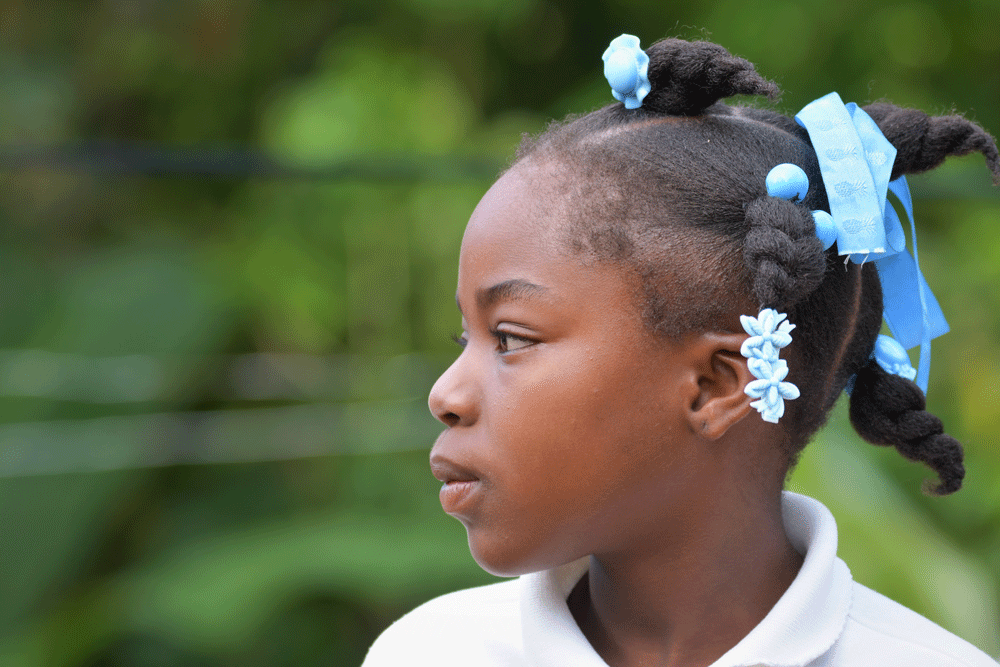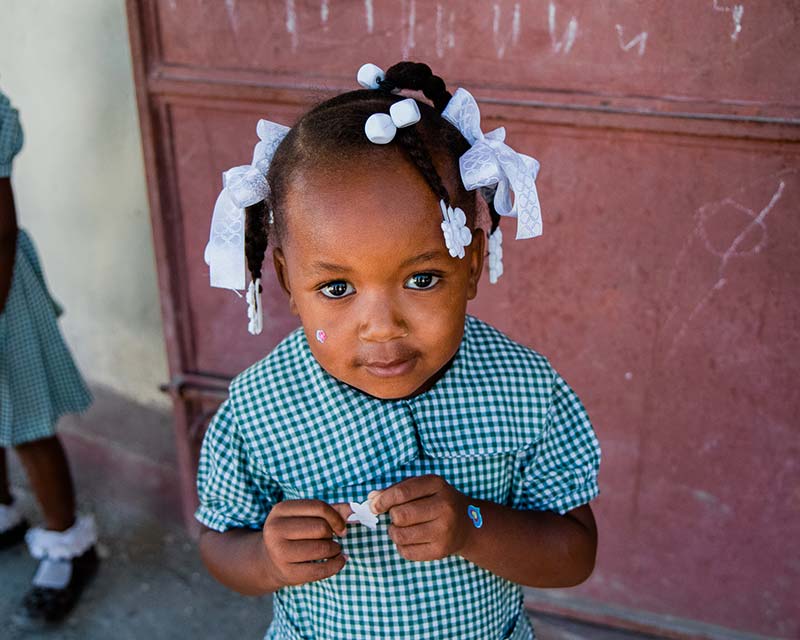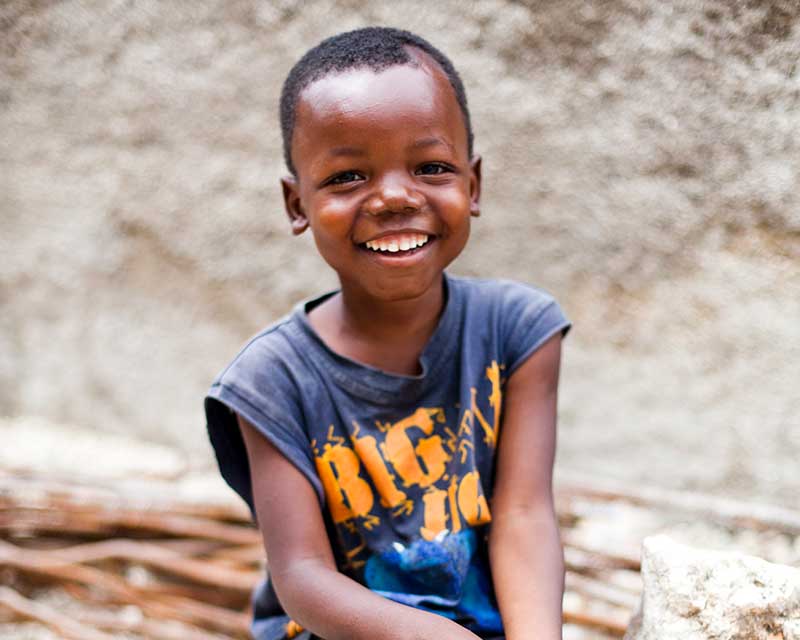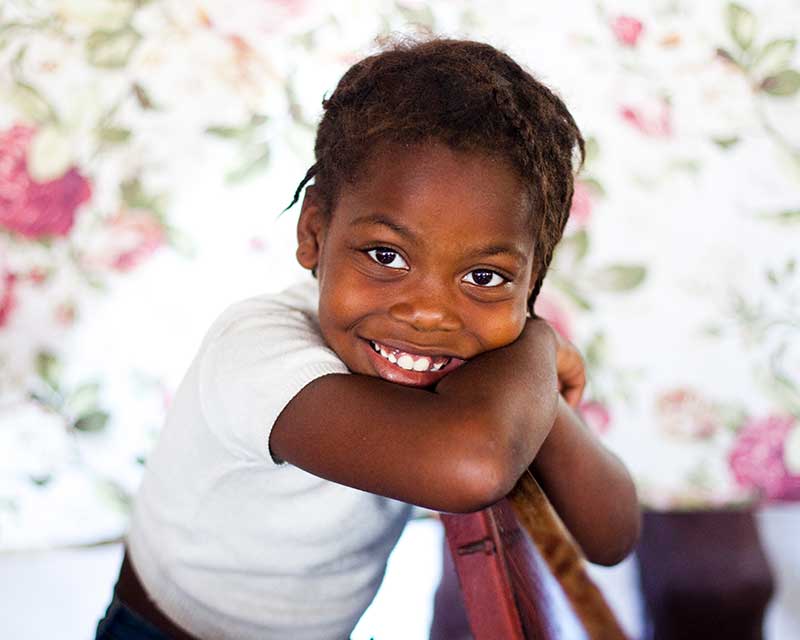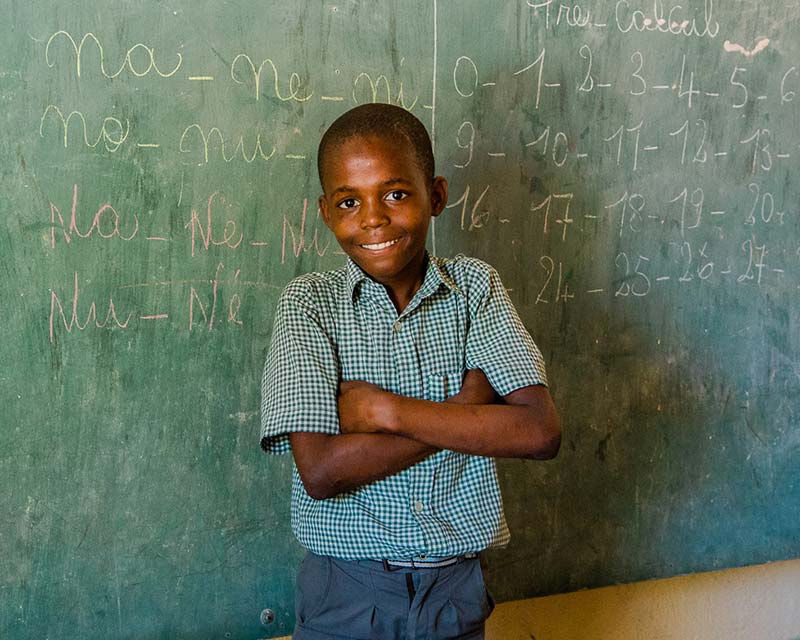Haiti became the first independent Caribbean state when it ousted its French colonial rulers and abolished slavery in the early 19th century. Haitians are characterised by their wonderful sense of humour as well as their resilience in the face of great adversities, such as hurricanes, earthquakes and gang violence.
Haiti is currently the poorest country in the Western Hemisphere, with more than half the population living in poverty. Widespread malnutrition has led to approximately 22 per cent of children experiencing moderate to severe growth stunting.
Equally pervasive and just as detrimental to their development is child labour. 24 per cent of children aged 5-17 are engaged in child labour of some sort.
Haitian President Jovenel Moïse was assassinated during a raid on his home on 7th July, 2021. Only a month later, on August 14th, a 7.2 magnitude earthquake hit southwestern Haiti. Close to 50 child development centres, which oversee more than 17,000 children, were destroyed or reported heavy damage.
This instability comes against a backdrop of historical destruction caused by earthquakes, floods and cyclones that regularly sweep the nation. Tens of thousands of Haitian people have lost their lives in the events of the past decade and millions more have had their homes and livelihoods destroyed. These regular events make it very difficult for the nation to build the infrastructure it needs—hospitals, roads, schools—to bring its people out of poverty.
Yet the church is rising again and again in response, meeting children’s physical, emotional and spiritual needs—providing them and their families with the immediate and long-term support they need to get back to their feet and experience the unfailing hope found in Jesus Christ.
READ MOREkeyboard_arrow_down
READ LESSkeyboard_arrow_up
